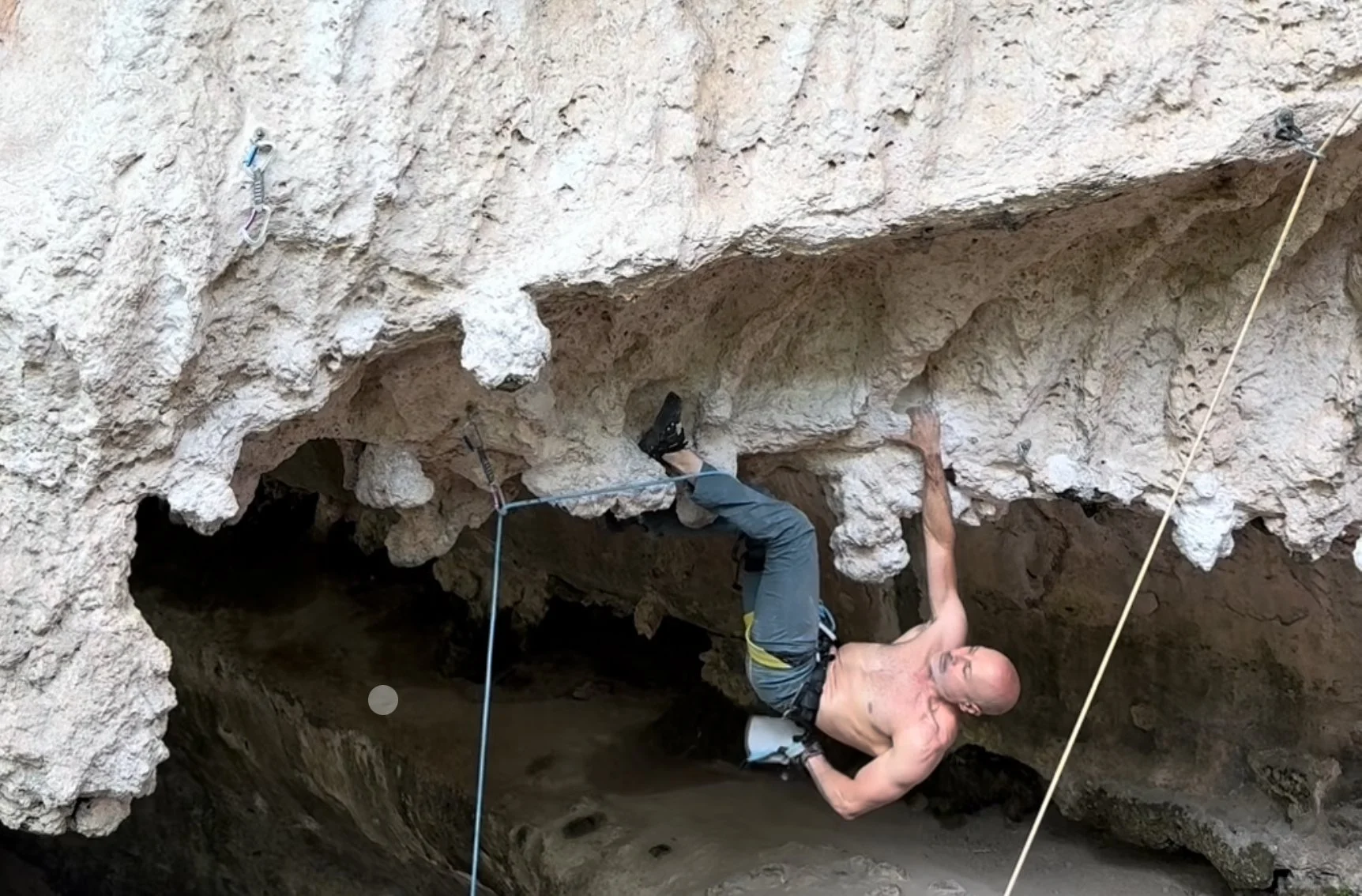Every move is a puzzle. You’re not just pulling — you’re balancing, problem-solving, dealing with fear, and controlling your entire body under tension.
Climbing challenges your strength, coordination, and focus — all at once. It’s not just about getting to the top, it’s about how you move along the way
Why Rock Climbing Is a Great Functional Exercise/Sport for Any Age and Any Ability — and How to Get Into It
Finding an exercise you can do for life — that doesn’t break you down over time — is getting harder. Running can be tough on the knees. Cycling is great, but battling distracted drivers isn’t ideal, and research has raised questions about its long-term effects on bone density and, yes, prostate health. These are all useful tools when paired with a solid strength plan, but they’re not perfect on their own.
Which brings me to climbing.
Climbing Is Becoming More Accessible Than Ever
With climbing gyms opening in nearly every city, this once niche sport is now widely available. Many gyms also offer yoga, weight rooms, and classes that support mobility and strength. Climbing itself is scalable — from routes that feel like climbing a ladder to barely-there holds on overhanging walls.
There’s a climb for everyone.
Why Climbing Is a Functional Super-Exercise
1. Total-body coordination: Climbing demands integrated movement from toes to fingertips. You’ll develop strength, balance, and dynamic control as your core, hips, back, and shoulders all work together.
2. Grip and core strength: Grip strength is one of the best predictors of longevity — even more so than blood pressure. Climbing trains your grip, deep core, and upper pulling muscles with every move.
3. Loaded mobility: Every climb requires mobility under tension. You’ll reach, stretch, and stabilize through a wide range of motion, improving joint health and usable strength.
4. Problem-solving under pressure: Every route is a new challenge, and each climber solves it differently based on their size, mobility, and experience. It’s a mental workout as much as a physical one.
More Than Physical: Mental and Emotional Gains
5. Facing fear: As you climb higher, self-doubt and fear often creep in. Climbing teaches you to manage that voice and push forward in a controlled, safe environment. That confidence carries into life.
6. Social connection and trust: Unless you boulder solo, you need a partner — someone to hold your rope and your trust. Climbing builds real communication and community. It's also a great bonding experience with kids.
7. Longevity and adaptability: Climbing builds grip, joint health, balance, and confidence. The routes can be adapted for any skill level, and the community is famously encouraging — people cheer for effort, not just skill.
A Path to Nature and Simplicity
8. Connection to nature: Climbing often leads you outdoors — to mountains, crags, or boulders. It’s a powerful way to combine movement, social connection, and time in nature. It’s hard to think of a better combination for mental health.
Climbing and Cognitive Health
Climbing doesn’t just build physical resilience — it trains your brain. Staying mentally engaged under pressure helps keep your mind sharp. Research suggests that activities involving complex movement, spatial reasoning, and focus — like climbing — can be powerful tools for delaying the onset of Alzheimer's and dementia. It’s not just exercise for your body; it’s exercise for your mind.
Ready to Try?
Climbing gyms are welcoming places, with staff eager to help new climbers get started. Whether you’re 15 or 65, there’s a climb for you. It won’t take long before you’re planning climbing sessions with new friends.
Still not sure? Feel free to reach out — I’m always happy to answer your questions or help you get started.
See you at the crag… and don’t forget to breathe.


